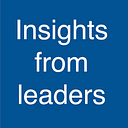Don't Fear the Terminology: Socialized Medicine - Michael Van Zandt
Regardless of one’s political views, most economists believe governments should play at least some role in a nation’s (or a global) economy. Even if we look at Adam Smith’s Invisible Hand in his 1783 Wealth of Nations, he saw government as essential for things such as patents, trademarks, contract enforcement, and public works. Granted, he thought public works should be paid for, commensurate with their use, by those who used them. Somewhat more middle-of-the-road economic theory would be Keynesian. Keynes advocated for fiscal and monetary policy to help manage economies and optimize employment via those levers. However, we will not focus on Economics here, we are to focus on healthcare.
In healthcare, it is important to balance the free-market’s invisible hand with that of government tools to deploy healthcare for all citizens. The unjustified fear here is that government involvement will lead to an inordinate amount of socialized medicine, however, we should not fear this term. I am a for-profit capitalist with over 20 years’ experience in the medical device industry, and I do not fear this term. I do not fear it because I have experienced it as an employee of large medical device firms selling products to an array of healthcare systems around the world, making a fair profit. In addition, I have experienced this phenomenon myself (as an American) on a long-term basis in both Canada and Japan, and for some minor back-pain help in Norway while traveling.
- Michael van Zandt — Genesis Med Tech
So, why do we fear the term “socialized medicine” when we have had it in the US for decades and decades? Here is a breakdown by percentage of how many have health insurance in the US, and the source of that insurance:
Over 1/3 of the US population has been on socialized medicine for a long time. Most in the medical device industry would like to expand the total addressable market (TAM), we can do that by expanding the pie. We would only need to expand our coverage in the US by approximately 10% to get the entire US population is covered. What would it take to bring in that last small group, and add them to our addressable market? This would provide a social safety net for the most desperate and vulnerable in our society. As a capitalist, I say, “do some good, make some money.”
Sure, more competition in the insurance industry, will not be embraced by insurance companies. However, adding a government-sponsored option for all to choose from will increase competition. It will take the fat out of the system, and potentially allow for reallocation to those underserved people who are uninsured. As a patient-consumer, just look at it as an additional choice, something that should be embraced by free-market supporters. We want to grow the white circle such that it encompasses the red circle, let’s expand the pie:
The best way to create value for all stakeholders is via growth. If we add 28M customers to the TAM in the US, it is good for patients, employees, and shareholders. It is challenging in this environment to raise prices in any industry, especially in the healthcare/medical device industry. Therefore, the only path to growth is through volume. In this case, volume growth will be driven by access to healthcare for the underserved and uncovered. As a quick anecdote, I have spent much of my life and career in Japan. As a patient, I have received the best health care in the world and as a businessperson, have enjoyed selling into one of the largest and most profitable medical device markets on the planet. And, incidentally, the Japanese have one of the longest lifespans in the world, usually ranking in the top two annually while spending only 10.9% of GDP on healthcare. Conversely, the US ranks somewhere in the high 30’s in terms of lifespan ranking, while spending 17.9% of GDP on healthcare.
- Michael van Zandt — Genesis Med Tech
Ignorance is a choice. Here is a list of popular international news websites:
Yahoo! News Google News HuffingtonPost CNN New York Times De Telegraaf NBC News Mail Online Washington Post The Guardian WSJ ABCNews BBC News USA Today LA Times De Volkskrant Le Monde Le Figaro
